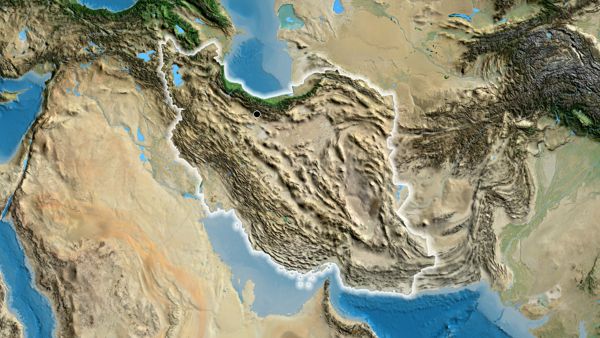Guest Post by Nick Giambruno
In the east, the Roman Empire generally ended where the Persian Empire began.
Unlike most other nation states in the Middle East, Iran (known as Persia before 1935) is not an artificial construct. By race, religion, and social history, it is a nation.
European bureaucrats didn’t dream up Iran by drawing zigzags on a map. The map reflects the geographic reality of a country with natural, fortress-like mountain borders.
Iran is Russia and China’s key ally in the Middle East, pushing back against the influence of the US and its allies.
The US, Israel, and their allies have not been successful in changing the behavior of the Iranian government. They’ve tried pretty much everything short of a full-scale invasion and using nuclear weapons.
In short, the US and its allies have few cards left to play against Iran.
If the US really wants to secure its influence in the strategic Middle East in a multipolar world—which would open the door to limiting Russian and Chinese power—it would need to overthrow the Iranian government.
However, to do that would require a full-scale ground invasion. Air power alone is not going to remove the Iranian government. It couldn’t even dislodge the much smaller and poorer Houthis from Yemen.
Remember, during the Iran-Iraq War (1980-1988)—back when Saddam was a “good guy”—he threw over 500,000 Iraqi soldiers at Iran, had the backing of the US and the Soviet Union, and used chemical weapons on a scale not seen since WW1… and he barely made a dent in Iran before retreating back to Iraq’s borders.
The reality is that if the US is serious about invading Iran, it would likely require total mobilization and bringing back the draft. That is not likely to happen, but even if it did, it would not guarantee US victory.
If Iran thought the US was going to invade, it could rush to develop nuclear weapons as a deterrent within a matter of weeks. Iran would also not just sit and wait for the US to stage an invasion, and would likely target any staging area for a ground invasion with hypersonic ballistic missiles.
Given those unfavorable prospects, the US (or Israel) could decide to use nuclear weapons on Iran preemptively.
Iran is well aware that the US or Israel could use nuclear weapons against it. It has contingency plans for that outcome to ensure the survival of its government. Iran’s plans also likely include making a dash for developing its own nuclear arsenal to be able to respond in kind.
Further, it’s doubtful that Russia and China would just sit back and do nothing if the US and Israel looked like they might nuke Iran. For example, Russia could decide to station nuclear weapons and Russian soldiers on Iranian soil as a deterrent.
Suppose the US and Israel used nuclear weapons on Iran. It would shatter the global taboo and effectively give other countries the green light to use them. Could Russia then nuke Ukraine or another part of Europe? Could China nuke Taiwan? What about India and Pakistan?
The consequences of the US or Israel nuking Iran would be catastrophic. And while it’s unlikely, it remains a real possibility.
Ultimately, either the US, Israel, and their allies will succeed in toppling the Iranian government, or Iran’s ruling system will endure and emerge as the dominant power in the Middle East.
I believe the outcome in Iran will shape the outcome of World War 3 and define the balance of power in the emerging multipolar world order. That’s why the US may not be deterred from taking actions that risk shutting down the Strait of Hormuz—or other drastic measures—in a bid to win.
The battle over Iran could ignite the most dangerous economic crisis in a century—one that threatens your money and personal freedom. To help you prepare, I’ve put together a special report, The Most Dangerous Economic Crisis in 100 Years… the Top 3 Strategies You Need Right Now.
Click this link for the original source of this article.
Author: Administrator
This content is courtesy of, and owned and copyrighted by, https://www.theburningplatform.com and its author. This content is made available by use of the public RSS feed offered by the host site and is used for educational purposes only. If you are the author or represent the host site and would like this content removed now and in the future, please contact USSANews.com using the email address in the Contact page found in the website menu.





